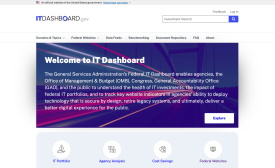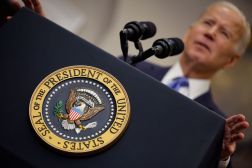In the two years since since the release of the Office of Management and Budget’s Digital Government Strategy, the federal IT landscape has become much more mobile. But a new survey of federal IT mobility and human capital executives claims that despite massive investment, the federal government is not fully realizing its quest for mobility.
Mobile Work Exchange released its “Mobility Progress Report” Monday, grading the federal government’s returns on mobile and telework investments. It found that though the U.S. has invested $1.6 billion governmentwide to give workers access to information anywhere and anytime, 77 percent of IT managers said their agencies scored either a “B” or “C” in progress toward the goals set by the Digital Government Strategy. Only 11 percent gave their agency an “A,” and 3 percent gave an “F.”
Because of the strides taken by many agencies to equip workers with laptops and other devices backed by investments in high-quality software and security, along with other data management tools, many IT managers reported significant gains in their agencies’ continuity of operations, employee productivity and overall efficiency. When paired with training efforts, many agencies have seen great returns on their investments, the survey found.
Still, there’s room to improve. Just 56 percent of respondents said their agency was taking full advantage of mobility. Many claimed security concerns, culture, available funding and procurement issues remained obstacles to greater mobile adoption.
The report also explored the federal government’s implementation of telework since 2010’s Telework Enhancement Act. In many ways, the progress is similar, as 94 percent of respondents — in this case human capital executives — said their agency has made some sort of human resources investment for mobile workers, but 81 percent gave their organization a “B” or “C” in terms of being telework friendly.
The biggest hindrance, the report stated, is workplace culture not fully embracing the change to telework. Eighty-eight percent of respondents said they’d had an employee leave their organization due to lack of teleworking opportunities, and 54 percent said they sometimes miss hiring the best candidate due to shortcomings in telework policies.
Nevertheless, mobility and telework should prevail in the federal workplace, the report said. Agencies plan to continue investing in mobility in the next two years, with much of that going to encryption, mobile devices and tablets. Likewise, HR managers claim telework should result in big-time governmentwide savings: an estimated $60 million from continuity of operations per day during disruptive storms and disasters and $15.1 billion per year in real estate reduction.
“Federal agencies are taking more and more steps towards graduating to the digital world, but are not quite yet at their full potential,” said Cindy Auten, general manager of the Mobile Work Exchange, in a statement. “With reported gains in [continuity of operations], employee productivity, and overall efficiency, it builds the business case for agencies to invest in mobile technologies. As agencies look to the future, they must continue to invest in these technologies if they want to save in the long run.”






